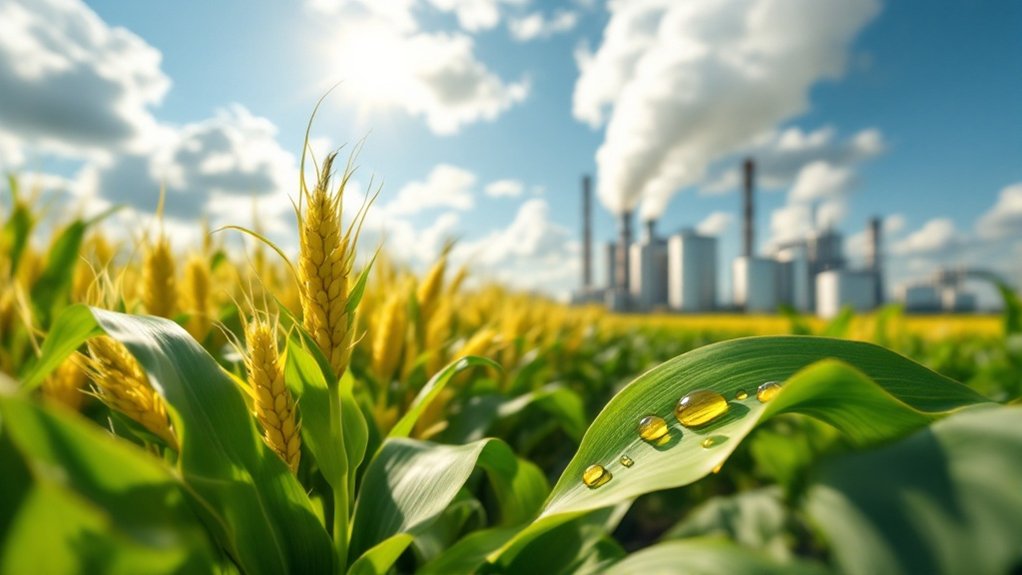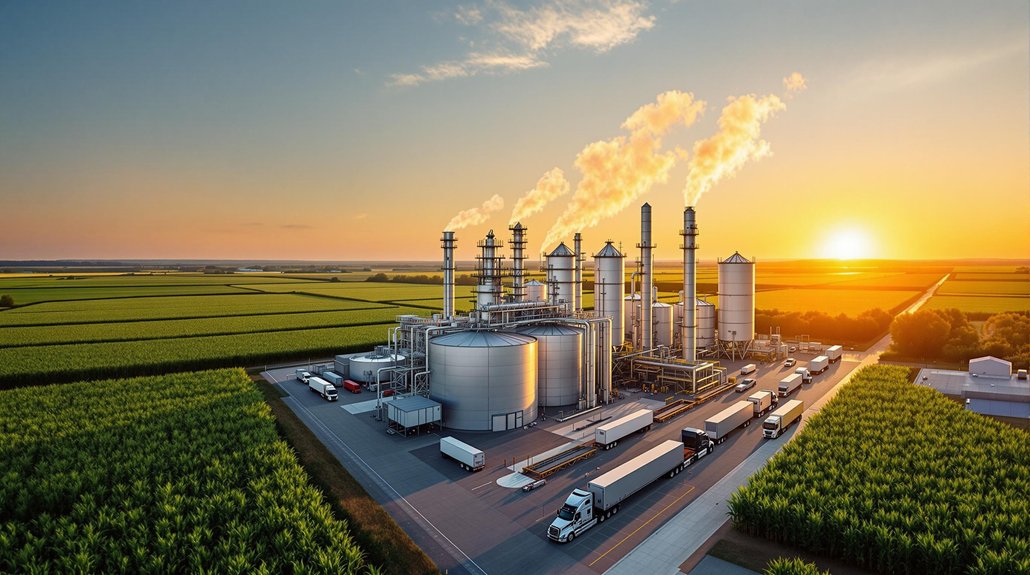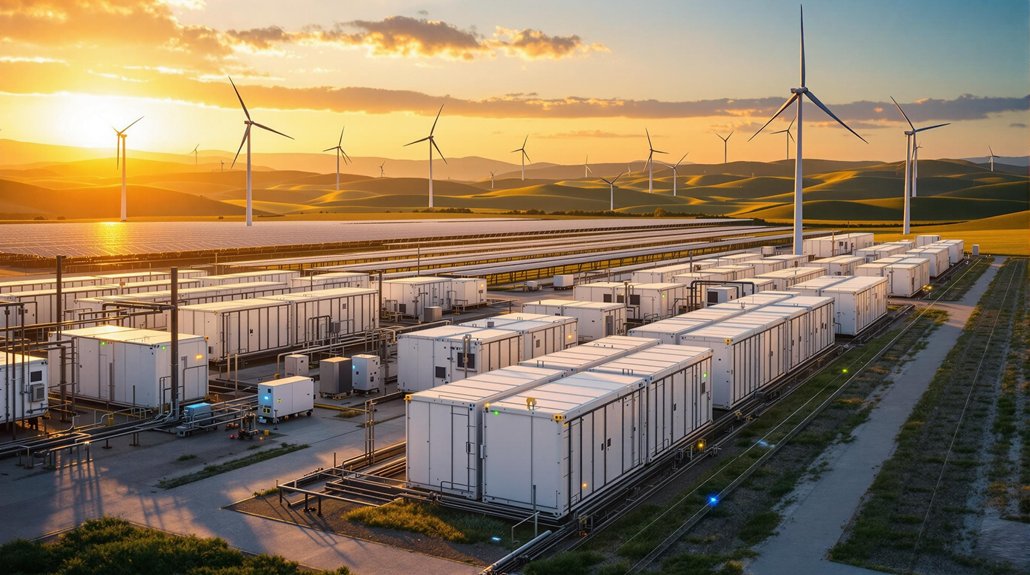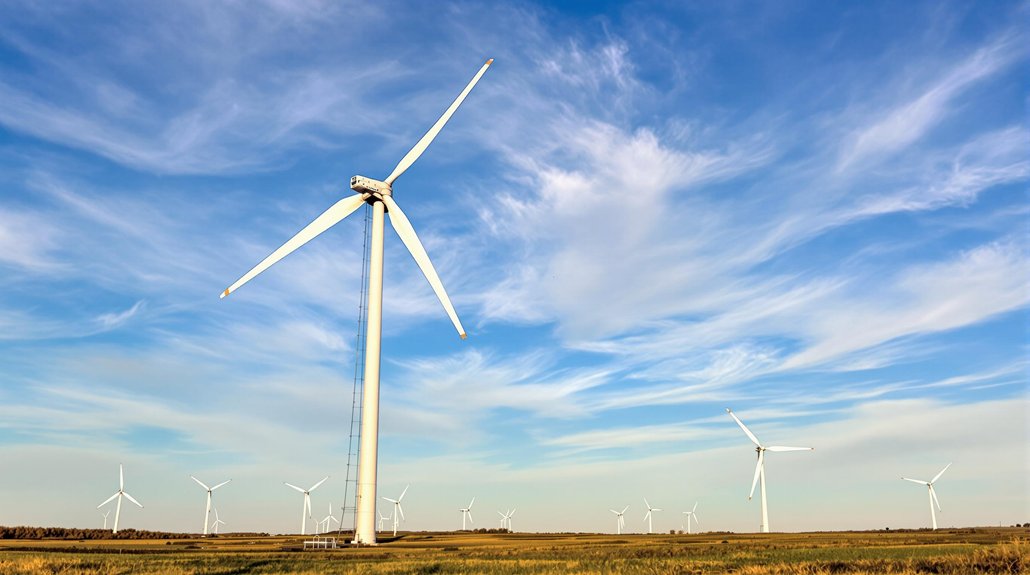Biofuels pack a serious environmental punch, slashing greenhouse gas emissions by up to 65% compared to fossil fuels. They’re not just eco-friendly – they’re economic powerhouses, creating jobs and keeping money local instead of funding overseas oil barons. These renewable fuels work in most vehicles without modifications, turn waste into energy, and break down naturally. Plus, they give engines better performance with higher cetane ratings. The benefits of biofuels just keep stacking up.

While fossil fuels continue their slow death spiral, biofuels are emerging as the renewable superhero we desperately need. These plant-based fuels aren’t just a trendy alternative – they’re slashing greenhouse gas emissions by up to 65% compared to their fossil fuel counterparts. Biodiesel and ethanol provide significant energy gains, with biodiesel yielding 93% more energy than invested in its production. And unlike petroleum’s toxic legacy, biofuels break down naturally and play nice with the environment.
Let’s talk independence. Every gallon of biofuel produced on home soil is one less barrel of foreign oil we need to import. This isn’t just about feeling good – it’s about breaking free from the oil industry’s mood swings and price tantrums. Biofuels can be produced pretty much anywhere there’s agriculture, which means energy security isn’t just a pipe dream anymore. Through anaerobic digestion, agricultural waste can be efficiently converted into clean, renewable energy.
The economic impact? It’s like a gift that keeps on giving. Biofuel production creates jobs in farming and manufacturing, pumps life into rural communities, and gives farmers new markets for their crops. Tax revenues flow to local governments, and the trade deficit shrinks as oil imports decline. Simply put, money stays home instead of floating overseas.
Here’s the kicker – biofuels actually make engines run better. Higher cetane ratings mean better performance, and increased lubricity means less engine wear. Plus, they’re incredibly versatile. Cars, trucks, planes – if it has an engine, biofuels can probably power it. Most vehicles don’t even need modifications to run on them. With over 5,000 stations across the US and Canada offering biodiesel and E85 gasoline, access is becoming increasingly convenient.
But perhaps the most beautiful part is how biofuels turn waste into gold. Used cooking oil? Turn it into biodiesel. Agricultural leftovers? Convert them into fuel. Forest residues? You bet those can power vehicles too.
While fossil fuels drain the planet’s resources, biofuels create a sustainable cycle – grow, use, regrow.
The numbers don’t lie – biofuels improve air quality, create jobs, reduce waste, and boost energy independence. They’re not just another alternative fuel source; they’re a practical solution that’s already working. And unlike fossil fuels, they’re not going to run out anytime soon.








